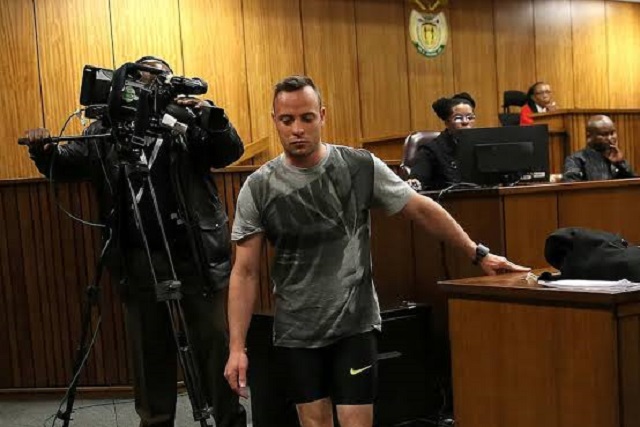Pretoria – South Africa’s ex-Olympic runner Oscar Pistorius was granted early release from prison on Friday, a decade after he fatally shot his girlfriend, Reeva Steenkamp, in a crime that gripped the world, prison authorities said.
A parole board reviewing whether Pistorius, 37, was fit for social reintegration decided to place him on parole from January 5, the department of correctional services said.
“Mr Pistorius will complete the remainder of the sentence in the system of community corrections and will be subjected to supervision in compliance with parole conditions until his sentence expires”.
Earlier Steenkamp’s mother told the parole hearing that she did not believe the ex-athlete was rehabilitated for he had not shown true remorse.
“Rehabilitation requires someone to engage honestly, with the full truth of his crime and the consequences thereof. Nobody can claim to have remorse if they’re not able to engage fully with the truth,” June Steenkamp said in a statement to the board.
But her spokesman told the board she was not opposing parole for Pistorius.
The hearing held at a correctional centre outside Pretoria where he is currently detained, was Pistorius’s second shot at parole in less than eight months.
He lost a first bid in March when the board found Pistorius had not completed the minimum detention period required to be let out.
The Constitutional Court last month ruled that was a mistake, paving the way for a new hearing.
Pistorius killed Steenkamp, a model, in the early hours of Valentine’s Day 2013, firing four times through the bathroom door of his ultra-secure Pretoria house.
Known worldwide as the “Blade Runner” for his carbon-fibre prosthetics, he was found guilty of murder and given a 13-year jail sentence in 2017 after a lengthy trial and several appeals.
He had pleaded not guilty and denied killing Steenkamp in a rage, saying he mistook her for a burglar.
My child ‘screamed for life’
But June Steenkamp said she does not believe him.
“I do not believe Oscar’s version,” she said in her submission to the board that was read to the media outside the detention centre by a family spokesman.
“My dear child screamed for her life loud enough for the neighbours to hear her. I do not know what gave rise to his choice to shoot through a closed door four times at somebody with hollow-point ammunition when I believe he knew it was Reeva.”
Nevertheless, she said she forgave the former sprinter “long ago, as I knew most certainly that I would not be able to survive if I had to cling to my anger.”
As part of his rehabilitation, Pistorius met Steenkamp’s parents last year, in a process authorities said aims to ensure inmates “acknowledge the harm they have caused”.
June Steenkamp was not present at the parole hearing on Friday and was being represented by a family spokesman and a lawyer.
Steenkamp’s father Barry died in September aged 80.
“I’ve no doubt that he died of a broken heart,” the widow said in her statement.
Family spokesman Rob Matthews said it was going to be very difficult for June Steenkamp to attend the proceedings given what she had recently gone through.
“It’s been a real tough road that June has travelled… in March there was a parole hearing and it took all her courage to attend that,” he said.
Offenders in South Africa are automatically eligible for parole consideration after serving half of their sentence.
The board, normally made up of correctional services and community members, assesses whether an inmate still poses a danger to society.
This takes into account the seriousness of the offence as well as Pistorius’s behaviour behind bars.
Release usually comes with some conditions, such as monitoring from authorities and duty to report to a community correction centre.
Follow African Insider on Facebook, Twitter and Instagram
Picture: Twitter/ @karabeast_
For more African news, visit Africaninsider.com
Compiled by Betha Madhomu


